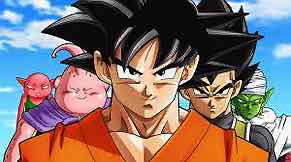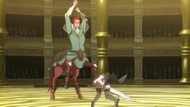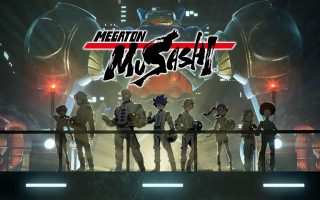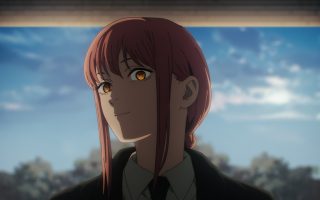Thank you once again to Nicc for commissioning this piece.
Writing about the life and work of a legend like Toriyama Akira just after his untimely passing seems like the most natural thing in the world. Why wouldn’t someone like me do that? But here’s the thing: I don’t know Toriyama’s work very well. I tried to get into Dragon Ball, and it never grabbed me. I’ve never even waded into any of his other works (though I will check out the new Sand Land anime at some point). So in truth, I’m pretty ill-suited to tackle this job.
But then, there are things I do know. And among them is this: I’m not sure I’ve ever seen a mangaka with a broader and more diverse fanbase than Toriyama. Dragonball Z was one of the first anime I had ever heard of living in the States, unless you count Star Blazers (Uchuu Senkan Yamato) or Speed Racer, which I didn’t even know were “anime”. It was an anime young boys loved, but at that time it didn’t really penetrate my awareness beyond knowing what the main character looked like.
When I loved to Japan the breadth of Toriyama’s reach became much clearer to me – especially when I worked in Japanese schools. You would be as likely to find Toriyama fans among elementary schoolers in third grade as teachers. I remember a white-haired old gent (and I don’t use the term loosely, he really was a gentleman) teaching junior high telling me how much he loved Dr. Slump, and getting geeky about the details. This was a man who never expressed the slightest interest in any anime or manga I talked about with the kids (which was a lot). But when Dr. Slump came up, he was an enthusiastic kid all over again.
There are really two aspects to Toriyama’s popularity and influence. His stature in Japan can’t be overstated. Dragon Ball alone has sold over 260 million volumes (only Kimetsu no Yaiba has averaged more sales per volume), making it one of the best-selling franchises in history (Dr. Slump would rank in the all-time top 20 in sales per volume too). His influence on Shounen Jump artists is indisputably unmatched, even by Oda Eiichirou. Oda, in fact, considered Dragon Ball a major influence on One Piece and often referred to Toriyama – with whom he developed quite a close friendship – as a God of manga.
Still – maybe because of my background – I think Toriyama’s influence may be most profound in terms of popularizing manga and – especially – anime worldwide. We don’t even need to get into how influential his game design in stuff like Dragon Quest and Chrono Trigger is internationally (most Western players probably had no idea who he was or how he was involved). I truly think that when many non-fans think of anime, to this day, it’s Toriyama’s very particular character designs they see. In effect he’s synonymous with anime to many Westerners.
When Toriyama died, the flood of remembrances came not just from the expected sources, like Oda and other mangaka or even famous Japanese public figures. Soccer clubs across Latin America tweeted statements (Toriyama was hugely popular in Latin America), and the president of France, Emmanuel Macron, issued a press release (Toriyama received the Knight of the Order of Arts and Letters from France, one of the most anime and manga-conscious countries in the world). People worldwide exist who know what “Super Saiyan” and “Kamehameha” are without even knowing the source.
It’s hard to overstate how formative DBZ was on American attitudes towards anime when Cartoon Network began airing it back in the 1990’s, during the “Toonami” block that helped shape the sort of anime fan so many (including myself) would become. We’d never really seen a cartoon like that on network (or national cable) TV like that before. DBZ was especially popular with future NFL players, it seems, as generations of football stars became lifelong fans. Something about the series’ emphasis on hard work and slow, painful improvement clearly struck a nerve with youngsters committed to athletics.
So, in sum, Toriyama-sensei was a giant. Unquestionably one of the most influential and personally well-liked mangaka of all-time, renowned both as a mentor for younger artists and as an animal lover. I’m not so sure, then, why none of his works every connected with me. There are other huge shounen franchises which I likewise sort of don’t get, not least One Piece but also the likes of JoJo, Bleach, and Naruto. But Dragon Ball seems to be in a special category of reverence, one with more fans in high places than just about any other. It’s enough to make a person feel kind of left out.
Here’s one element which kind of stands out for me. We’ve covered influential pretty well, but Dragon Ball more than just about any other series seems to qualify as inspirational. Another one that springs to mind is Captain Tsubasa, which schoolboy and schoolgirl soccer players across the globe (and like DBZ especially Latin America) adored and emulated. Dragon Ball struck a chord with people – especially young people – determined to better themselves. It’s something a parody of the martial arts genre, but a loving one. It celebrates hard work and determination, which often provide their own reward. For kids suffering through the rigors of sports or martial arts training, it seemed to connect on a visceral level.
Now, as it happens, I’m neither an athlete nor a martial artist. I played baseball and tennis as a child and teenager but never labored under any illusions that I was going to be seriously good at it. I love sports, but serious to the point of dedication physical pursuits were never my thing. Maybe that’s part of the issue here – that inspirational side of DBZ didn’t resonate with me. But then we have Hunter X Hunter (a series that was undeniably influenced by Toriyama too), which (though only later, in the 2011 reboot) seriously did. Especially as regards Gon and Killua and their approach to Nen, a Toriyama-style focus on martial training is absolutely integral to the work.
I guess my take on that is, as similar as DBZ and HxH are in some exterior ways, internally they’re a stark contrast. What draws me into Togashi’s work is the darkness he reveals in seemingly innocent souls, and – while I freely admit I could be wrong about this – that’s not something I ever got from Toriyama’s work. The style of humor is also radically different, needless to say. It’s very much of the gallows variety in Hunter X Hunter (though it has its Toriyama-esque goofy gags to be sure). Maybe I’m just too cynical and messed up as a person to bond with Dragon Ball the way I do with Hunter X Hunter. And of course, not being a gamer, Toriyama’s work there never made an impact on me either.
I guess, in the end, the lesson is that not every legend is going to resonate with every reader or viewer. We all have our peculiarities as human beings, and every anime and manga fan is wired differently. We’re all here for different reasons. So even if I never felt a personal connection to Toriyama Akira’s fiction, I found myself strongly impacted by his passing. One can’t help but be moved to see the impact such a person had on the world, especially when it’s a part of the world to which I do feel strongly connected. Toriyama was a God of manga indeed, helped make anime the worldwide presence it is today, and was by all accounts a kind and generous father, husband, and mentor. Our little corner of the world is diminished by his departure.
The post LiA Bespoke Project : The Career of Toriyama Akira appeared first on Lost in Anime.




